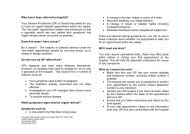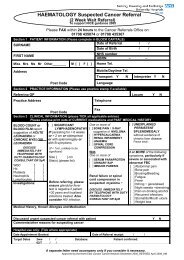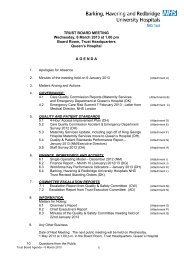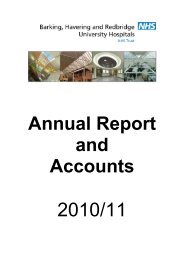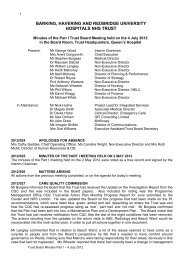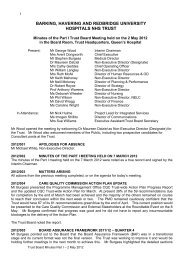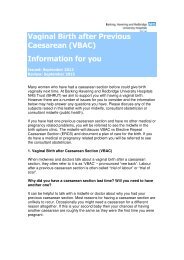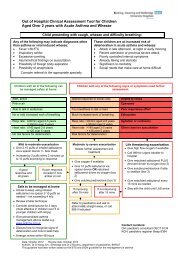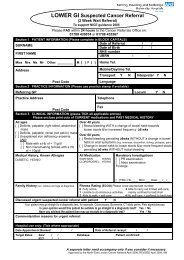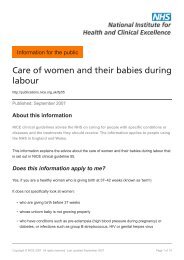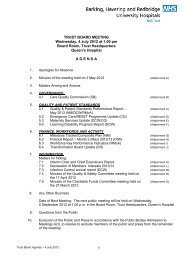Trust Board papers November 2012 - Barking Havering and ...
Trust Board papers November 2012 - Barking Havering and ...
Trust Board papers November 2012 - Barking Havering and ...
Create successful ePaper yourself
Turn your PDF publications into a flip-book with our unique Google optimized e-Paper software.
BACKGROUND<br />
Information Governance (IG) is a framework that brings together best practice, st<strong>and</strong>ards<br />
<strong>and</strong> requirements that apply to the h<strong>and</strong>ling of information. This includes sensitive <strong>and</strong><br />
personal information, of patients <strong>and</strong> employees as well as commercially sensitive<br />
information.<br />
Information Governance provides a way for employees to deal consistently with the many<br />
different rules about how information is h<strong>and</strong>led, including those set out in:<br />
• The Data Protection Act 1998<br />
• The common law duty of confidentiality<br />
• The Confidentiality NHS Code of Practice<br />
• The NHS Care Record Guarantee for Engl<strong>and</strong><br />
• The Social Care Record Guarantee for Engl<strong>and</strong><br />
• The international information security st<strong>and</strong>ard: ISO/IEC 27002: 2005<br />
• The Information Security NHS Code of Practice<br />
• The Records Management NHS Code of Practice<br />
• The Freedom of Information Act 2000<br />
• The Caldicott Report<br />
This strategy sets out <strong>Barking</strong> <strong>Havering</strong> <strong>and</strong> Redbridge University Hospitals NHS <strong>Trust</strong>’s<br />
(BHRUT’s) approach to providing a robust Information Governance framework. It is essential<br />
that appropriate management structures, leadership <strong>and</strong> organisational processes are in<br />
place to deliver successful information governance, <strong>and</strong> important the Information<br />
Governance agenda is adequately resourced.<br />
Information Governance sits alongside clinical <strong>and</strong> corporate governance in providing the<br />
service users <strong>and</strong> other organisations with the assurance that personal <strong>and</strong> commercially<br />
sensitive information is h<strong>and</strong>led in a confidential <strong>and</strong> secure manner to appropriate legal,<br />
ethical <strong>and</strong> quality st<strong>and</strong>ards.<br />
The Information Governance strategy is monitored by the Connecting for Health (CfH)<br />
Information Governance Toolkit. This is a performance tool produced by the Department of<br />
Health (DH) which draws together the legal rules <strong>and</strong> central guidance set out above <strong>and</strong><br />
presents them in one place as a set of Information Governance requirements.<br />
This document should be read in conjunction with the Information Governance Policy. The<br />
Action Plan sets out a delivery of actions to satisfy the requirements.<br />
PURPOSE<br />
1. To ensure that patient <strong>and</strong> corporate data collected or created is of the best possible<br />
quality.<br />
<strong>Barking</strong>, <strong>Havering</strong> & Redbridge University Hospitals NHS <strong>Trust</strong> Page 2 of 9<br />
Information Governance Strategy Version 1.3 Issued August <strong>2012</strong>



![[4] Biopsy Leaflet.pub - Barking, Havering and Redbridge University ...](https://img.yumpu.com/51285530/1/190x134/4-biopsy-leafletpub-barking-havering-and-redbridge-university-.jpg?quality=85)
